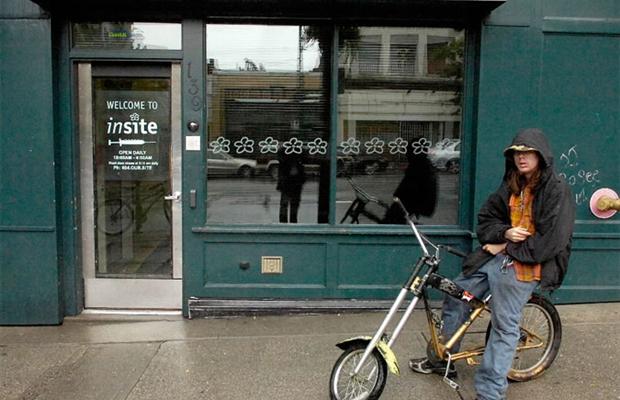Insite, Vancouver’s safe injection site, says it has seen 14 overdoses in just 24 hours this week.

That is a big jump from the average of one or two overdoses a day.
The jump happened on Tuesday, the day before social assistance cheques are typically handed out to recipients. However, this month many people received their cheques early. Vancouver Coastal Health says normally they get between six and seven overdoses on the day social assistance cheques are handed out.
Officials have already noticed a possible link between the day and the overdoses, prompting the decision to open Insite for 24 hours between now and this weekend.

Get breaking National news
In the 24 hour period this week, Insite had 692 visits, compared to the usual 700 visits a day during an 18 hour period.
Last week, Vancouver Coastal Health announced it would start a pilot project for the next six months to operate Insite around the clock on the Wednesday, Thursday and Friday of the weeks that social assistance cheques are issued.
It is normally closed between 3 a.m. and 9 a.m.
Insite was North America’s first sanctioned supervised injection site. It opened in 2003 and health authority statistics show it has recorded more than three-million injections and nearly 5,000 overdose interventions, but not a single overdose death.
“We don’t want people overdosing in an alley or at home when Insite is closed between 3 a.m. and 9 a.m. If people are going to use illicit substances, it is better that they do so in a supervised environment,” Dr. Ron Joe, with the health authority’s substance use services unit, told The Canadian Press.
-With files from The Canadian Press








Comments